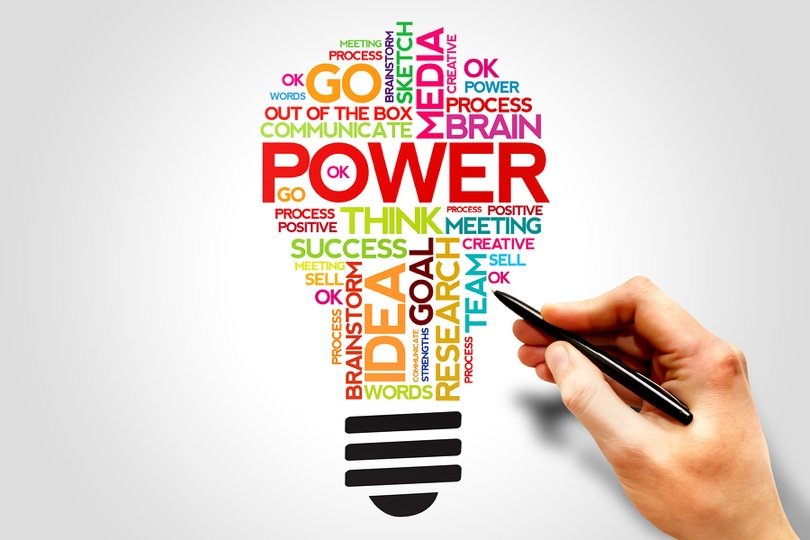
Power Words: The Key to Compelling Content
Words are powerful tools that can inspire, persuade, and evoke emotions in your audience. As a content creator, your goal is to capture your audience’s attention and keep them engaged throughout your piece.
One way to do that is by using power words, which are high-impact terms that can elicit a strong emotional response from your readers.
Here we look at what power words are, why they’re important, and how you can use them effectively in your content. We’ll also provide a list of some of the most powerful words in the English language, along with examples of how they can be used to improve your writing.
What are power words?
Power words are words or phrases that have a strong emotional impact on the reader. These words are carefully chosen to evoke a particular emotion or response in the reader, such as excitement, urgency, curiosity, or fear.
They are used to create more engaging and persuasive content, and can be particularly effective in headlines, subheadings, calls-to-action, and other areas where you want to capture your reader’s attention and encourage them to take action.
Examples of power words include words like “amazing,” “compelling,” “limited,” “exclusive,” “proven,” “guaranteed,” “instant,” “urgent,” and “unforgettable.” These words are typically short, simple, and direct, and are designed to create an immediate emotional response in the reader.
When used effectively, power words can make your content more memorable, impactful, and persuasive. By choosing the right words to convey your message, you can connect with your readers on a deeper level and inspire them to take action.
Why are they important for web content?
Power words are important for web content because they can help you capture your audience’s attention and keep them engaged throughout your piece. In today’s digital age, attention spans are shorter than ever, and web users are bombarded with a constant stream of information and content. To stand out from the crowd, your content needs to be engaging, persuasive, and memorable.

By using power words strategically in your web content, you can create an emotional connection with your readers and encourage them to take action. Power words can help you:
- Capture attention: Using power words in your headlines and subheadings can help you grab your reader’s attention and entice them to read further.
- Create urgency: Words like “limited,” “urgent,” and “act now” can create a sense of urgency that motivates readers to take action.
- Convey value: Words like “proven,” “exclusive,” and “guaranteed” can help you convey the value of your product or service and build trust with your audience.
- Evoke emotion: Power words can evoke emotions like excitement, curiosity, or fear, which can help your readers connect with your content on a deeper level.
Overall, using power words in your web content can help you create more compelling, effective, and memorable content that resonates with your audience and inspires them to take action.
Power words for standout blog headlines
Using power words in headlines is a powerful technique to attract more attention to your blog posts. The headline is the first thing that readers see, and it’s what determines whether they will click through to read the rest of your content or move on to something else. By using the right power words in your headlines, you can grab your reader’s attention, pique their curiosity, and encourage them to read on.
Here are some tips on how to use power words in your headlines to make them more compelling:
- Use numbers: Including numbers in your headline can help you stand out from the crowd and make your content more specific and tangible. For example, “10 Ways to Boost Your Productivity” is more compelling than “Tips for Being More Productive.”
- Be specific: Using specific words can help you convey the value of your content and make it more relevant to your audience. For example, “How to Lose 10 Pounds in 30 Days” is more specific and compelling than “How to Lose Weight.”
- Create urgency: Using words like “urgent,” “now,” and “act fast” can create a sense of urgency that motivates readers to click through and read your content. For example, “Urgent: Don’t Miss This Limited-Time Offer” is more compelling than “Check Out Our Latest Offer.”
- Use emotional triggers: Using power words that evoke strong emotions can help you connect with your readers on a deeper level and make your content more memorable. For example, “The Shocking Truth About [Topic]” or “How to Overcome Your Fears and [Achieve Goal]” are more compelling than more generic headlines.
Some examples of power words that can be effective in headlines include words like “proven,” “exclusive,” “limited,” “urgent,” “amazing,” “guaranteed,” “incredible,” “essential,” and “ultimate.”
Overall, using power words in your headlines can help you grab your reader’s attention, increase your click-through rates, and make your content more compelling and memorable. By choosing the right words to convey your message, you can create headlines that stand out from the crowd and encourage your audience to read on.
Finally, here are 50 power words commonly used in marketing:
- Free
- New
- Exclusive
- Limited
- Proven
- Guaranteed
- Instant
- Easy
- Quick
- Best
- Amazing
- Shocking
- Revealed
- Secret
- Revolutionary
- Ultimate
- Essential
- Powerful
- Unstoppable
- Simple
- Innovative
- Cutting-edge
- Valuable
- High-quality
- Trusted
- Popular
- Recommended
- Expert
- Authentic
- Unique
- Special
- Competitive
- Tested
- Reliable
- Effective
- Incredible
- Exciting
- Inspiring
- Impactful
- Dynamic
- Mind-blowing
- Persuasive
- Actionable
- Comprehensive
- Customized
- Advanced
- Practical
- Fun
- Interactive
- Engaging
These words are powerful because they create a strong emotional response in the reader and encourage them to take action, whether it’s to click through to your website, make a purchase, or sign up for your newsletter. When used effectively, they can make your marketing messages more compelling, memorable, and persuasive.

